Alabama Department of Public Health launches new COVID-19 information website and media campaign

The Alabama Department of Public Health announced a new multimedia campaign called “Alabama Unites Against COVID.” The campaign aims to stress the importance of the COVID-19 vaccine. The new website, alabamaunites.com helps users locate vaccination and testing sites, updated guidance, frequently asked questions, vaccine information, and what to expect when testing for COVID-19. The campaign highlights messages about how people should help each other in their communities in the fight against the virus. In addition to advertisements in print publications, four television commercials are airing on stations statewide and on social media. State Health Officer Dr. Scott Harris released a statement about the new website. He emphasized the need for Alabamians to have access to the correct information regarding vaccines and Covid-19. “Regrettably, some Alabamians live in “information bubbles” that promote and sustain vaccine hesitancy. The Alabama Unites website sends the visitor to links which disseminate clear, complete, and accurate messages about COVID-19 vaccines and encourage them to get tested when they experience symptoms. Resources provide answers to frequently asked questions on vaccine benefits, effectiveness, safety, possible side effects, and availability. Information about what is known and what is unknown is provided.,” Harris wrote. “This campaign demonstrates in an emotionally powerful way how important it is that we stand together. When more people get vaccinated and tested, we are encouraged, because the fight is not over yet. It is still critical that Alabamians protect themselves and others by receiving the COVID-19 vaccine. Anyone who has symptoms of the virus, should get tested as soon as possible. By doing these things, we can greatly reduce the effects of COVID-19.”
Drive-thru Covid-19 testing clinics still available throughout Alabama
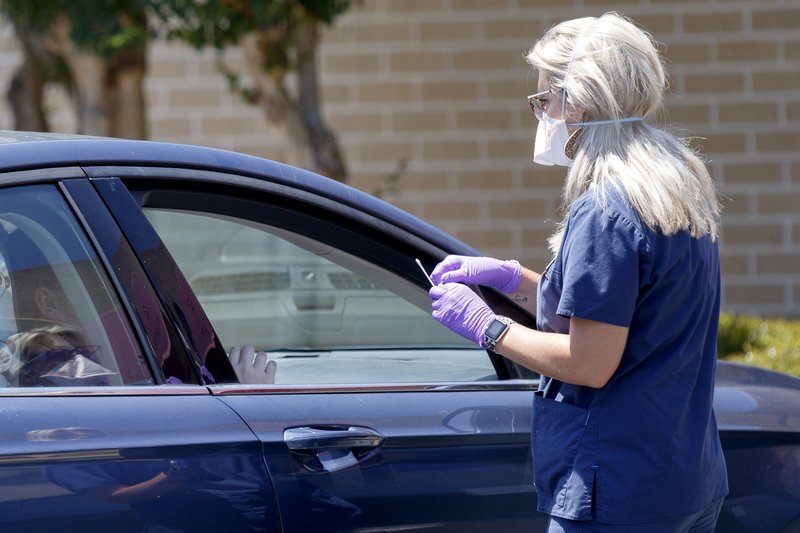
The Alabama Department of Public Health released information, reminding the public that drive-thru COVID-19 testing clinics are available at four sites in the state. There are no out-of-pocket charges, and both insured and uninsured are welcome. Easy Testing has operated similar testing sites in Baldwin and Monroe counties since the beginning of 2021. The testing utilizes a Yale saliva PCR test with results returned in 24 – 48 hours. While pre-registration is not required, it is requested that you pre-register at the Easy Testing website. According to a recent interview with WTVY, State Health Officer Dr. Scott Harris commented, “We are almost at that peak,” when discussing the number of people hospitalized now for covid compared to the numbers last year. Harris did say that some positive covid cases are “incidental” meaning patients are found to be covid positive while in the hospital for other issues. Harris believes the state has reached the peak, or is close to its peak, and will decline soon. He’s hopeful Alabama covid numbers will decline soon, but that it’s “hard to predict the future.” Every home in the U.S. is eligible to order four free at-home COVID-19 tests. The tests are completely free. Orders will usually ship in 7-12 days. According to the Alabama Department of Public Health Covid Dashboard, there have been over 1.1 million positive covid cases in Alabama and 16,826 deaths. The overall level of community transmission is high for all counties in Alabama, meaning more than 10% of people who are tested are covid positive. COVID-19 Easy Testing Sites Baldwin County Central Annex22251 Palmer St.Robertsdale, Ala. 36567Monday – Friday8 a.m. – 6 p.m. Eastdale Mall1000 Eastdale MallMontgomery, Ala. 36117Tuesday – Saturday10 a.m. – 6 p.m. Enterprise State Community College600 Plaza DriveEnterprise, Ala. 36330Monday – Friday8 a.m. – 5 p.m. Hoover Metropolitan Complex5508 Stadium Trace ParkwayHoover, Ala. 35244Monday – Saturday9 a.m. – 5 p.m.
Pfizer vaccine booster dose authorized for children 12-15 years old
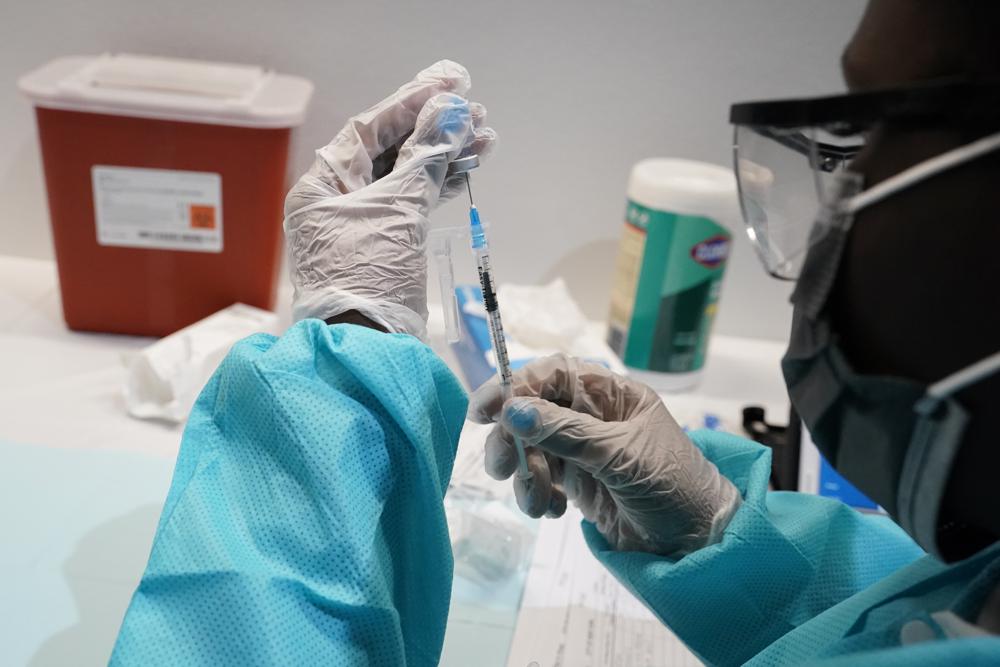
The Alabama Department of Public Health (ADPH) announced new Covid-19 vaccine recommendations from the Centers for Disease Control and Prevention (CDC). The CDC has authorized the use of the Pfizer-BioNTech vaccine as a single booster dose in individuals 12 through 15 years of age. Previously, the booster dose of the vaccine was authorized for adolescents 16 years of age and older. The CDC also approved a third primary series dose of the Pfizer-BioNTech vaccine. The third dose can be administered at least 28 days following the two-dose regimen in individuals 5 through 11 years of age who are determined to be moderately to severely immunocompromised. The updates came after an ongoing review of the available safety and efficacy data by the Food and Drug Administration (FDA). Any known or potential benefits of additional doses were determined to outweigh any potential vaccine risks. The CDC also lowered the authorized dosing interval of a booster dose to at least five months after completing a Pfizer-BioNTech or Moderna primary series. The booster dose after the Johnson and Johnson vaccine remains at two months. The Moderna and Johnson & Johnson/Janssen vaccines are only authorized for adults 18 years of age and older. During a press conference last week, ADHP health officer Dr. Scott Harris expressed concern for Alabamans and the sudden rise in omicron variant cases. The Covid-19 positivity rate in Alabama is almost 39%. That means nearly four in 10 tests came back positive. “It will infect everyone in the state at some point, or most of them,” Harris stated. “So, we really need people to do the single most important thing they can do to protect themselves, which is to be fully vaccinated and boosted when it’s appropriate to do that.” Alabama currently has one of the nation’s lowest vaccination rates. According to the CDC, less than 48% of the state’s population is fully vaccinated. Studies show that protection decreases over time after getting vaccinated against COVID-19 and may also be decreased due to changes in circulating variants.
Harris: ‘Omicron spreading like wildfire’ in Alabama

Alabama’s state health officer on Tuesday said the highly infectious omicron variant of COVID-19 is spreading like wildfire in Alabama as the state sets record numbers for cases. “We are unfortunately not in a real good place right now. We are seeing the highest daily case numbers we have seen since the pandemic began,” State Health Officer Scott Harris said in a briefing with reporters. “It is just spreading like wildfire,” Harris said, adding that, “omicron will infect a very large number of people in Alabama before it finally subsides.” Alabama set new records for daily cases, hitting more than 8,000 a day December 30 and December 31, according to numbers from the Alabama Department of Public Health, and the average percentage of COVID-19 tests coming back as positive hit a new high of 38.5% Tuesday. “So, we really need people to do the single most important thing they can do which is to be fully vaccinated and boosted when it’s appropriate to do so.” While early research suggests omicron causes less severe disease than earlier variants — such as the delta variant which he said had an estimated 2% fatality rate — he cautioned that some people will still get severely ill and the high infection rates means significant numbers could end up in state hospitals. “We had 41 people die yesterday. We don’t have that with the flu. We don’t have that with common colds. It’s just not the same thing,” Harris said. According to researchers at Johns Hopkins University, the seven-day rolling average of daily new cases in Alabama has risen over the past two weeks from 831.71 new cases a day on December 19 to 6,139.43 new cases a day on Sunday. The state ranks 29th in the country for new cases per capita. There were more than 1,100 people in state hospitals with COVID-19 on Monday, although that is far fewer than the 3,000 people hospitalized at the peak of earlier waves. Dr. Don Williamson, president of the Alabama Hospital Association, on Monday said about 32% of hospitalized patients had been vaccinated, but he did not yet have numbers on what percentage had booster shots. Williamson said the number of medical workers who are out because of COVID-19 or flu is “creating some staffing issues” at hospitals across the state. Less than 48% of the state’s population is fully vaccinated, giving Alabama one of the nation’s lowest vaccination rates despite months of work by health officials to promote the shots. With more than 16,450 dead of the illness, Alabama has the nation’s third-highest death rate from COVID-19, according to researchers at Johns Hopkins University. Many Alabama students returned to K-12 classrooms this week, although some systems opted for temporary remote learning. The Alabama Department of Public Health recommends students and educators wear masks, guidance that has remained unchanged. The University of Alabama announced this week that people will be required to wear masks in most campus settings. Republished with the permission of the Associated Press.
Todd Stacy’s inaugural Capitol Journal show to air January 7
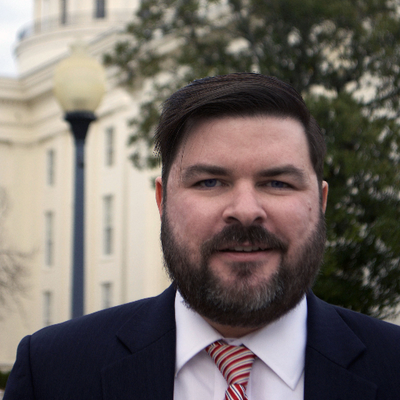
Alabama Public Television’s public affairs series CAPITOL JOURNAL will begin the new year with its new host, Todd Stacy. Stacy, a Montgomery resident and publisher of Alabama Daily News, is taking over the reins on January 7 after previous host Don Dailey retired in December after 10 years in the anchor’s chair. Stacy will join veteran reporters Karen Goldsmith and Randy Scott as the Alabama Legislature begins its 2022 regular session. “I’m grateful to the Alabama Public Television leadership for their confidence in me to host such a meaningful news space in Alabama politics,” Stacy said. “I grew up watching APT and have enjoyed working with their team professionally over the years. It’s more than a little intimidating to fill the shoes of Don Dailey, who is a mainstay at the State House and universally well respected, but I’m honored by the opportunity and eager to get started.” Stacy is a veteran of both Washington, D.C. and Montgomery politics. He previously worked for former Gov. Bob Riley and former U.S. Rep. Martha Roby. He launched Alabama Daily News in January 2018 and will continue as publisher. Phil Hutcheson, interim executive director and CFO of Alabama Public Television stated, “We are excited to welcome Todd Stacy to the team. Viewers can rely on CAPITOL JOURNAL for straight-forward and balanced coverage of news from Montgomery and around the state and the most in-depth television coverage of the Legislature available.” Guests for this Friday’s show include Senate President Pro Tem Greg Reed, House Minority Leader Anthony Daniels, Finance Director Bill Poole, and State Health Officer Dr. Scott Harris.
Alabama to get limited supply of new COVID-19 treatment

With COVID-19 hospitalizations and cases on the rise in Alabama, the state will have a limited number of doses of a new drug that can be used to treat the illness, health officials said Thursday. The state’s initial supply of 780 courses of the Pfizer oral drug Paxlovid, which the Food and Drug Administration approved for emergency use as the omicron variant spreads rapidly, will be distributed through pharmacies, the Department of Public Health said in a statement. Dr. Scott Harris, the state health officer, said the drug will be available to people who aren’t hospitalized with the illness but isn’t a substitute for vaccinations, “which remain the best way for most people to protect themselves against severe illness and death due to COVID-19.” “I continue to urge all Alabamians to be vaccinated and receive a booster dose when eligible,” Harris said. Paxlovid, which will be available by prescription by the first week of January, was authorized for the treatment of mild-to-moderate COVID-19 symptoms in adults and children. Other states will also receive limited supplies before production and distribution increases, officials said. Less than half of the state’s population is fully vaccinated, and relatively few people are following health recommendations to wear masks in public places and maintain a safe distance from others. In Hoover earlier this week, unmasked holiday shoppers far outnumbered people with covered faces at the state’s largest shopping mall, the Riverchase Galleria. More than 16,380 people have died of COVID-19 in the state, giving Alabama the nation’s second-highest death rate from the illness caused by the coronavirus, according to researchers from Johns Hopkins University. Over the last two weeks, the rolling average number of daily new cases has increased by 348, or 64.1%, but the state ranks last in the nation for new cases per capita, according to Johns Hopkins. Hospitalizations for COVID-19 have jumped more than 70% statewide in a month to more than 430 on Wednesday, but that is still far below levels from early fall when officials said the state’s health care system was in danger of being overwhelmed by the illness. Republished with the permission of the Associated Press.
Virus hospitalizations, school cases increasing in Alabama

COVID-19 numbers are again headed in the wrong direction in Alabama, with hospitalizations up more than 50% from a month ago and school cases climbing in the state with the nation’s second-highest death rate during the pandemic. Although the state’s health system is in far better condition than it was in August and September, when hospitals were all but full and officials feared the network was nearing the breaking point, numbers are slowly creeping upward, said Dr. Scott Harris, the head of the Alabama Department of Public Health. “We are a little concerned about how our numbers are trending,” Harris said in a discussion held on Facebook live Monday night by the Medical Association of the State of Alabama. About 400 COVID-19 patients were hospitalized statewide Monday compared with about 250 a month ago, according to health department statistics. Harris called that number “very manageable” for a system that was treating about 3,000 pandemic patients daily in the fall. “But still, a 25% increase over the last couple of weeks is a reason for concern,” Harris said. The new, fast-spreading omicron variant has been confirmed in the state, but health officials don’t believe it has overtaken the delta strain yet. Omicron cases don’t respond to monoclonal antibody treatments that have helped patients in recent months, posing a problem once the variant arrives in force, officials said. Alabama schools reported 750 cases of COVID-19 this week, up about 25% from the 589 last week. The largest increases were in the large metropolitan areas around Birmingham, Huntsville, Mobile and Montgomery plus rural Walker County, northwest of Birmingham. With only about 47% of the state’s population fully vaccinated against the virus that causes COVID-19, more than 16,350 people have died from the illness in Alabama, according to researchers from Johns Hopkins. The death toll is the 16th highest nationally and the second highest per capita at almost 335 deaths per 100,000 people. Dr. Michael Saag, an infectious diseases expert at the University of Alabama at Birmingham, said there’s still time for additional vaccinations to stem a tide of new infections. People who aren’t vaccinated make up the vast majority of the people being treated in hospitals, he said, comparing a coming wave of infections from the new omicron variant of the virus to an approaching tornado. “There’s a storm coming and we need to get in our safe place, and the safest place we can be is with vaccines,” said Saag, who recovered from a bout with COVID-19 early in the pandemic. The rolling average of daily new cases in the state over the past two weeks has increased by 332, a jump of 66.6%, according to researchers at Johns Hopkins University. While there were about 197 new cases per 100,000 people in the state during the period, that ranks 50th nationwide. Dr. Aruna Arora, president of the state medical organization, said doctors are nervous about what’s going to happen to people who haven’t been vaccinated and gotten boosters. Republished with the permission of the Associated Press.
Alabama sees antibody shipments decline
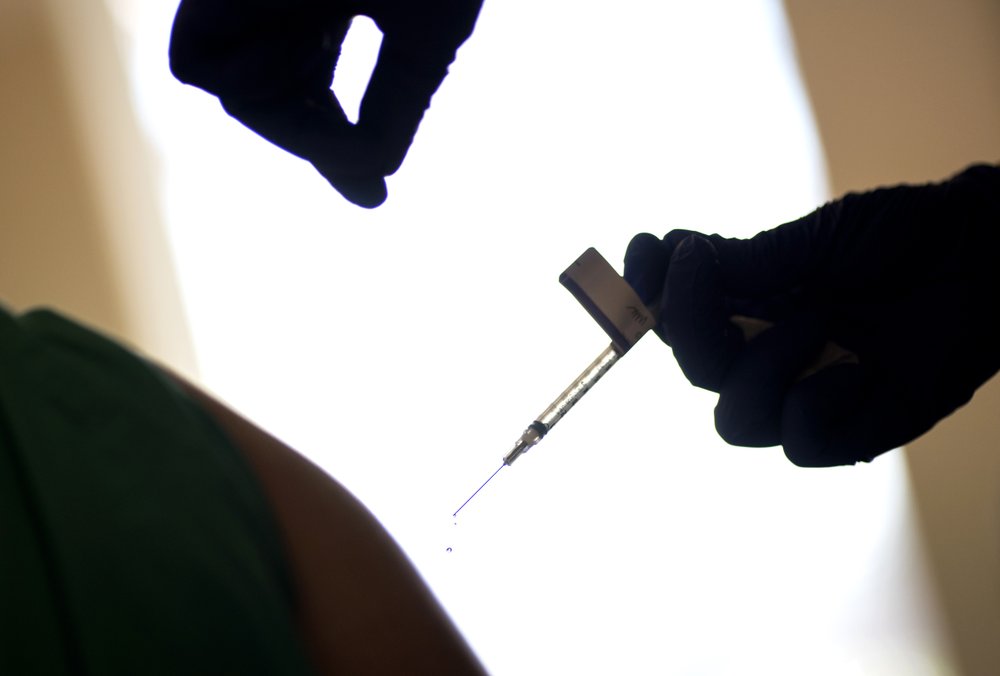
Alabama saw its number of available monoclonal antibody doses fall as federal officials try to ration the limited resource, but low-vaccination Southern states continued to receive some of the largest allocations. Alabama this week will receive 6,576 patient courses of the treatment used to prevent severe disease in a person with COVID-19, according to the Alabama Department of Public Health. That is down from 8,030 last week. Federal officials are using a formula — that includes case numbers, hospitalizations, and usage of available doses — to decide how many doses each state will get as they ration the treatments in response to a national shortage. “It has fallen off a little bit. I think the part we don’t know for sure is how much of this is due to the fact that are case numbers are going down a little bit, which they are, or how much is due to just lack of reporting of utilization which you get dinged for,” State Health Officer Scott Harris said Wednesday. Antibody treatment is a highly effective therapy that can blunt the worst effects of COVID-19 and prevent the disease from getting worse and requiring hospitalization. Doctors continue to emphasize that vaccination, rather than a secondary treatment, is the best way to prevent severe COVID-19 disease. “Our number one goal still is just to get people the first shot. Monoclonals are really plan B. In most cases they are going to people who might not have needed them if they had gotten vaccinated,” Harris said. The U.S. Department of Health and Human Services changed the distribution method to make sure the life-saving resource is distributed equitably. “Given this reality, we must work to ensure our supply of these life-saving therapies remains available for all states and territories, not just some,” the department said last week in a statement. Harris has expressed concern that the change would limit the availability of antibodies and, “it’s not going to be there in a way that people expect.” He said the allocation method relies on case numbers, but is concerned incomplete reporting by providers could artificially cut shipments. “The states that have more cases are going to get more product and that seems fair, given that it is a limited resource. I think we are at risk for being dinged a little bit on the reporting side. They said they will reduce your allocation if you are not reporting what you are using … We have a lot of new providers that haven’t done this before and aren’t used to reporting,” Harris said. Republished with the permission of the Associated Press.
Alabama virus hospitalizations dip below 2,000, deaths rise
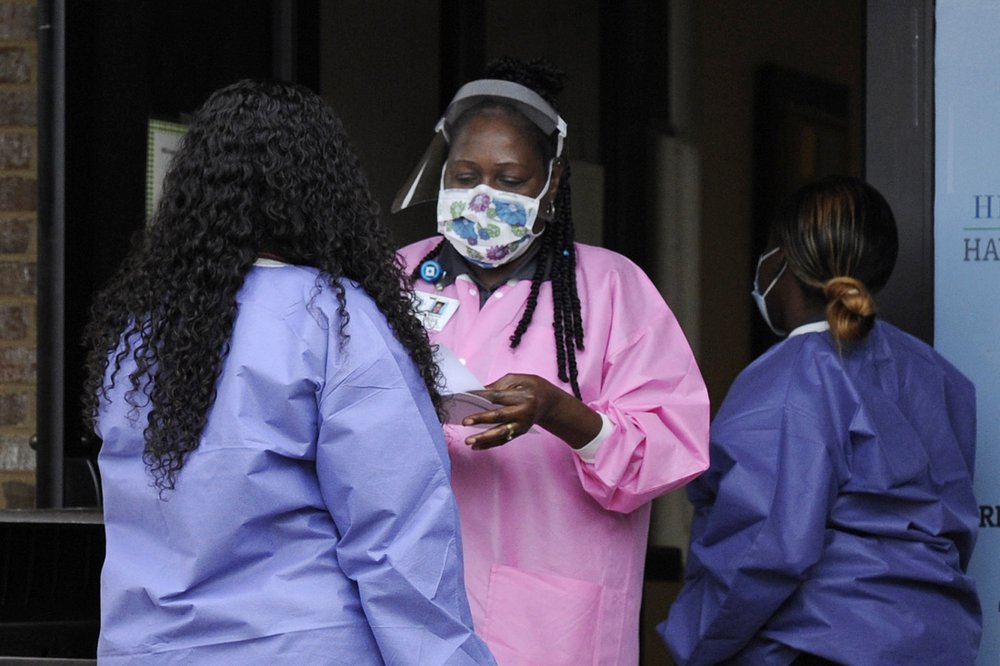
The number of COVID-19 patients in Alabama hospitals has fallen below 2,000, but medical officials cautioned Monday that hospitals and intensive care units remain full of largely unvaccinated patients and that deaths contributed to the decline. After weeks of a near-vertical upward trajectory in hospitalizations — as the highly contagious delta variant spread through unvaccinated populations — the number of people in state hospitals dipped Monday to 1,947 — the lowest it has been since early August. The number is down from 2,890 on Sept. 1 and 3,087 on Jan. 12. But it remains way above the early summer lull in the pandemic when there were fewer than 300 people hospitalized. The dip is potentially a positive sign, medical officials said, but they cautioned that large numbers of people remain in the hospital and that deaths contributed to the decline. “It is a good sign, but 25 consecutive days with more than 40 deaths clearly contributes to the decline,” Dr. Don Williamson, the former state health officer who now heads the Alabama Hospital Association, said. According to researchers at Johns Hopkins University, the seven-day rolling average of daily deaths in Alabama has risen over the past two weeks from 27.57 deaths per day on Sept. 4 to 76.29 deaths per day on Sept. 18. Williamson said he is concerned about the impact of a potential decrease in the availability of monoclonal antibody treatments as federal officials ration the valuable resource. State Health Officer Scott Harris said Friday, that it’s possible the delta variant had peaked in the state but cautioned that it is too soon to tell. He too said part of the reason the hospital numbers have declined is because of the number of patients that have died. “We are also continuing to have double-digit numbers of deaths which accounts for some of the decline,” Harris said. Republished with the permission of the Associated Press.
Alabama to use $12 million in relief funds to recruit nurses
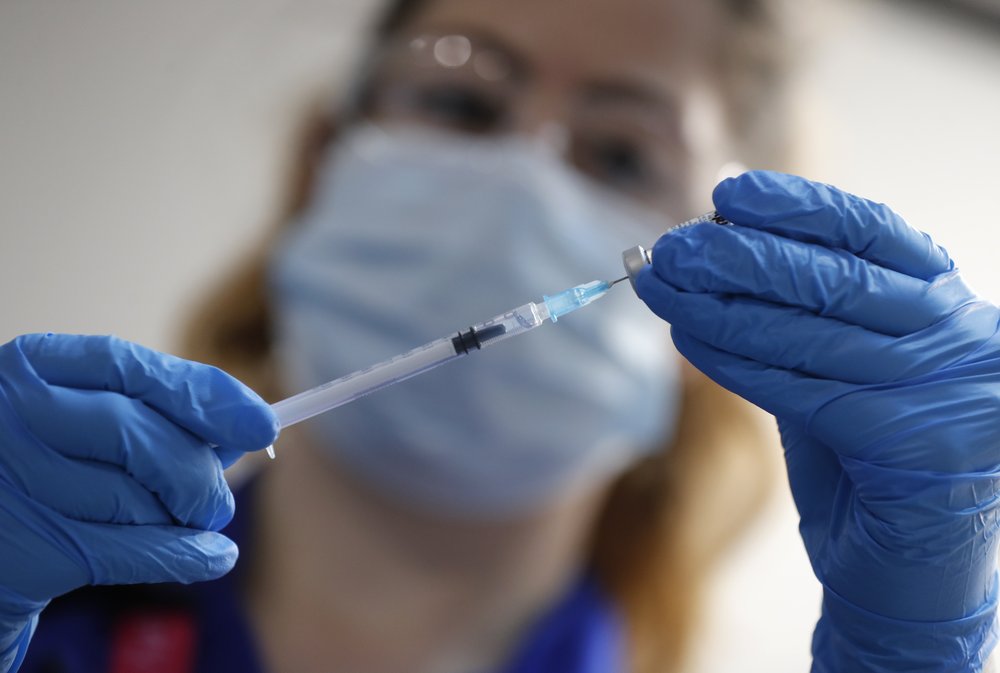
Alabama Gov. Kay Ivey on Friday reallocated $12.3 million of the state’s coronavirus relief funds to hire travel nurses to help state hospitals overwhelmed with COVID-19 patients. The Republican governor announced the move as the state continues to see a surge in virus cases, straining hospital resources and staff. “I’m pleased to see more folks getting vaccinated, but we are still in the thick of COVID-19, and our hospitals are overwhelmed,” Ivey said in a statement. “The money is coming from the state’s share of CARES Act funds. Until our vaccination rates rise and our COVID-19 hospitalization rates fall, we will need the extra support these nurses provide.” Alabama on Thursday had 2,838 COVID-19 patients in state hospitals, a number just below the January pandemic peak of a little over 3,000. But the state has a record number of virus patients in intensive care, causing hospitals to convert other areas to make-shift intensive care units. The state has 1,541 staffed intensive care unit beds, but on Thursday had 1,661 patients receiving intensive care. More than half of the intensive care patients are people with COVID-19. The COVID-19 pandemic has exacerbated a nurse staffing crisis, sending U.S. hospitals into a competition for travel nurses and staff to handle the crush of patients this summer. Hospitals need more staff to handle the patient loads while some nurses have left because they are exhausted, taken lucrative travel jobs, or are out sick because they themselves are sick with COVID-19. Baptist Medical Center South in Montgomery, like hospitals across the country, has turned to travel staff to fill positions. “It’s a national arms race for clinical talent,” CEO Peter Selman, said. He said the hospital is paying up to between $140 and $155 an hour to national staffing firms. “We’re at our most critical juncture for clinical staff, namely nurses and respiratory therapists and we have a heavy reliance on travel nurses.” The Alabama Hospital Association said there was already a nursing shortage in Alabama before the pandemic, but that after “18 months of grueling hours and emotionally draining work, the shortage has only worsened.” “The dedicated staff who continue to care for Alabamians with COVID-19 and those in need of other hospital services are simply overwhelmed and exhausted, and it’s time to send in some reinforcement,” the organization said in a statement. “This funding comes at a crucial time and will make a tremendous difference in increasing the nursing workforce in our state,” State Health Officer Scott Harris said in a statement. Republished with the permission of the Associated Press.
Alabama turns to college football to boost vaccinations
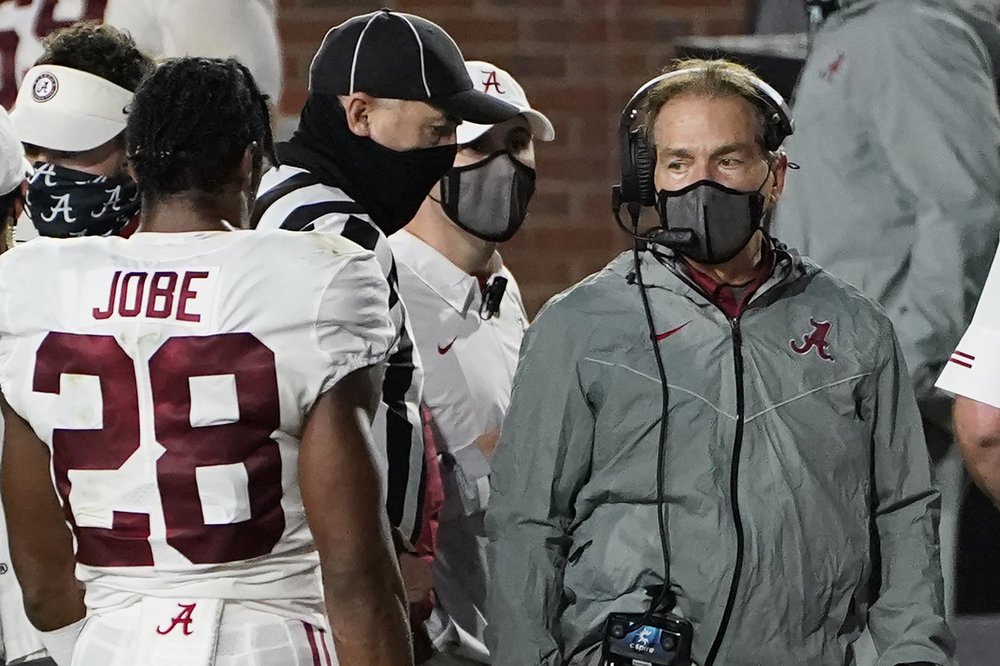
Alabama is trying to harness the state’s love of college football to boost COVID-19 vaccinations with a new initiative that will offer shots at college gamedays and give away $75 gift cards for university bookstores to the newly vaccinated. On Thursday, the Alabama Department of Public Health announced the KICK COVID campaign that will include vaccination and testing sites at select games, player appearances in promotions, and the gift card giveaway to promote the importance of getting vaccinated against COVID-19. “We all know about our love of football here in the state of Alabama,” said Gene Hallman, president, and co-owner of the Bruno Event Team, a sports event management company partnering on the program. “We view the central aspect of this program as being college football and the players themselves — speaking in their own authentic, sincere voices — asking their fans and fellow students to please go and get that vaccine.” State Health Officer Scott Harris said he is hopeful it can boost vaccination uptake in a state where college football games are a major event in people’s weekends. Alabama has one of the lowest vaccination rates in the country, ranking at the bottom among states for the percentage of people fully vaccinated and in the bottom ten for the percentage of people who are partially vaccinated. “I think this is something that probably might not work in every state in the union, but in the South, particularly in Alabama where college football is such an important part of everyone’s life… I think we have a really good opportunity to make this a very successful program.” Hallman said the $75 gift card to campus bookstores is a way of saying “thank you” to the newly vaccinated. The program is the state’s first monetary reward for vaccinations, although local areas and universities have already offered such freebies. The KICK COVID vaccination sites and giveaways will be held during select college gamedays during September and October. The program will be at both the University of Alabama and Auburn University games on Sept. 25. People can get the $75 gift card to the campus bookstore by getting vaccinated at the KICK COVID vaccination site at their team’s selected gameday or by getting the first dose two weeks ahead of the game and uploading their vaccine card to the KICK COVID site. Only vaccinations started within 14 days of the select gameday are eligible. Harris said the Alabama Department of Public Health is using revenue streams from several sources to fund the program. This is not the first time football has been harnessed as a tool to urge vaccinations. Alabama football coach Nick Saban and other sports figures taped a public service announcement earlier this year encouraging Alabamians to get the COVID-19 vaccine. “College football fans and players both want full stadiums this fall. Let’s make sure we can safely make this happen by getting vaccinated. Please get your COVID-19 vaccine,” Saban says in the spot. “We want Bryant-Denny Stadium loud again this coming season and Roll Tide!” Republished with the permission of the Associated Press.
Alabama sees surge in virus cases among school-age children
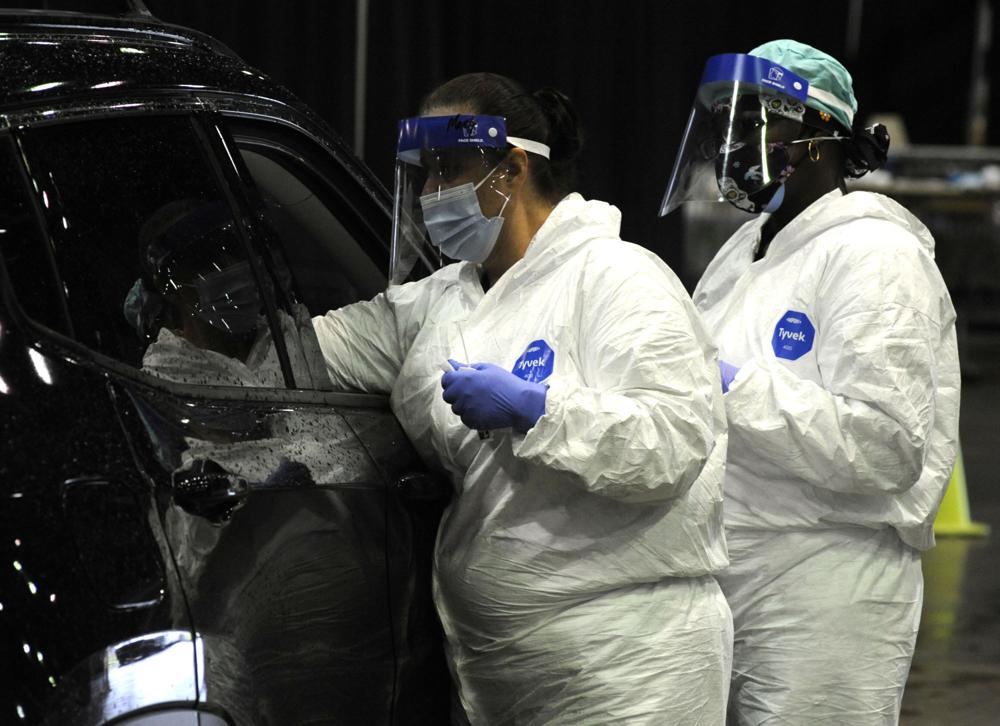
Alabama is seeing a sharp rise in COVID-19 cases in school-age children, an increase officials say is likely fueled by the highly contagious delta variant and is causing some schools to temporarily switch to remote learning. The Alabama Department of Public Health said Thursday that 5,571 children ages 5 to 17 were reported to have contracted COVID-19 last week. That compares to 702 cases in school-aged children during the same week last year, when more than half of students were studying remotely and the delta variant was not circulating. State Health Officer Scott Harris pointed to the more contagious delta variant as “the most likely explanation.” “The numbers are staggering,” Harris said of the increase. “We want to remind people that everyone needs to be vaccinated who is eligible, that is everyone 12 and up. We strongly recommend universal masking in schools.” The numbers represent a seven-fold increase in cases over that timeframe last year, although hospitalizations and deaths in children remain relatively rare, according to state numbers. Of the nearly 2,900 patients in state hospitals with COVID-19 on Thursday, fewer than 50 were children, according to the Alabama Hospital Association. State health officials have said about 6% of infected children develop the lingering symptoms known as “long COVID.” Harris said a state dashboard that lists school cases should resume reporting Friday. Alabama Superintendent Eric Mackey said the number of schools implementing temporary remote learning is growing “every day and it is growing exponentially.” “The delta variant is so much more contagious. It certainly has been more contagious among youth. We are seeing that,” Mackey said. “We never anticipated there would be this kind of spike not in schools but a community-wide spike, that would hit the week we began to open school. It was the perfect storm,” Mackey said. Lee, Cullman, and Lawrence counties are among those that this week announced a temporary return to remote learning for some individual schools. Cullman County Superintendent Shane Barnette said five schools in that system will switch to remote learning for the next two weeks. The decision came after one-third of students there were absent either because they tested positive for COVID-19 or were in quarantine because of being in close contact with someone who did. “The safety and well-being of our students, faculty, and staff is the number one priority in our school district,” Barnette said. Shelby County Schools on Thursday announced the system would begin requiring masks to be worn in schools. State officials have left decisions on masks to local systems. Superintendent Lewis Brooks wrote to parents that the move, “gives us the best chance to stay in school without a complete shutdown.” Mackey urged parents to be patient. “These are challenging times for teachers and principals. We know that it is frustrating for them and for parents, but parents just need to be patient. We’ll get through this difficult spike,” Mackey said. He also urged people to talk to their medical provider about getting vaccinated to slow the spread and “not have another spike.” Republished with the permission of the Associated Press.


